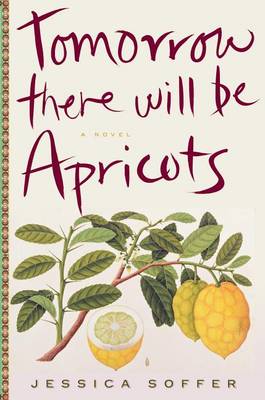Reviewed by Leah on
Tomorrow There Will Be Apricots tells the tale of two very different people. There’s Lorca, a fourteen-year-old girl who’s struggling with life. She’s moved from her home in New Hampshire, to New York with her Mom who doesn’t seem to care much about what’s going on in her life, so Lorca has decided that the only way to get herself back into her Mom’s affections is to make her her favourite Iraqi dish, masgouf. That leads her to the recently widowed Victoria, who is starting cooking classes and Lorca decides to participate in the classes in the hope of getting the recipe from Victoria. As the two bond, they may have more in common than they ever thought.
The novel switches from perspective, from Victoria to Lorca alternating chapters and they both have quite interesting voices. I actually felt really bad for Lorca, she’s clearly struggling and I couldn’t actually believe that nobody was interested in helping this girl. She clearly had some issues, and no one seemed to care at all. I sort of wanted to ring Child Protective Services myself, until I remembered this was a fictional novel. I don’t believe that what Lorca does wouldn’t be flagged up by somebody, a school teacher or even the school nurse. It was rather bizarre. I, too, felt sad for Victoria, recently bereaved, clearly coming to the end of her life and suddenly finding herself alone. I actually loved how the two of them came together and bonded, it was like fate.
I sort of guessed the secret of Tomorrow There Will Be Apricots, but there was a surprising twist, which I didn’t see coming. Overall if I’m being honest the novel wasn’t to my liking. Don’t get me wrong, I didn’t dislike it at all; it’s actually very well written, with some wonderful characters, I just thought it wasn’t really my kind of book. It’s a very slow book, the type of book that fans who don’t mind a slower paced read will enjoy. Me, I prefer a faster paced book, I like the plot to move along at a good pace, that will keep me reading, and I struggled at times with Tomorrow There Will Be Apricots. It was a good idea, very well written, and I enjoyed getting to know Victoria and Lorca, I just wished it was a bit of a quicker sort of read and I wished even more that someone had stepped in to help Lorca way sooner, because that girl desperately needed help, and I couldn’t believe nobody stepped in, but I liked she was self-sufficient enough to get along alright, because her mother wasn’t up to much.
Reading updates
- Started reading
- 1 February, 2014: Finished reading
- 1 February, 2014: Reviewed
